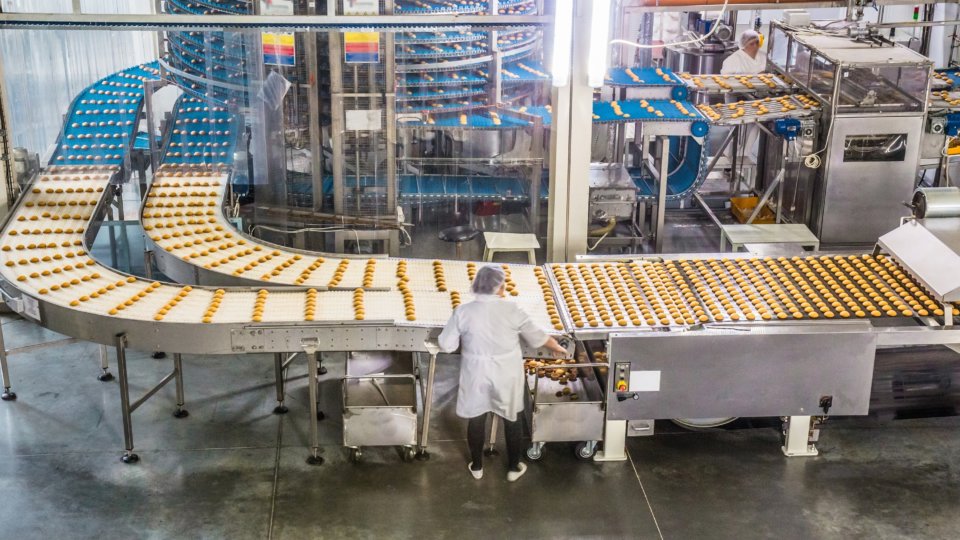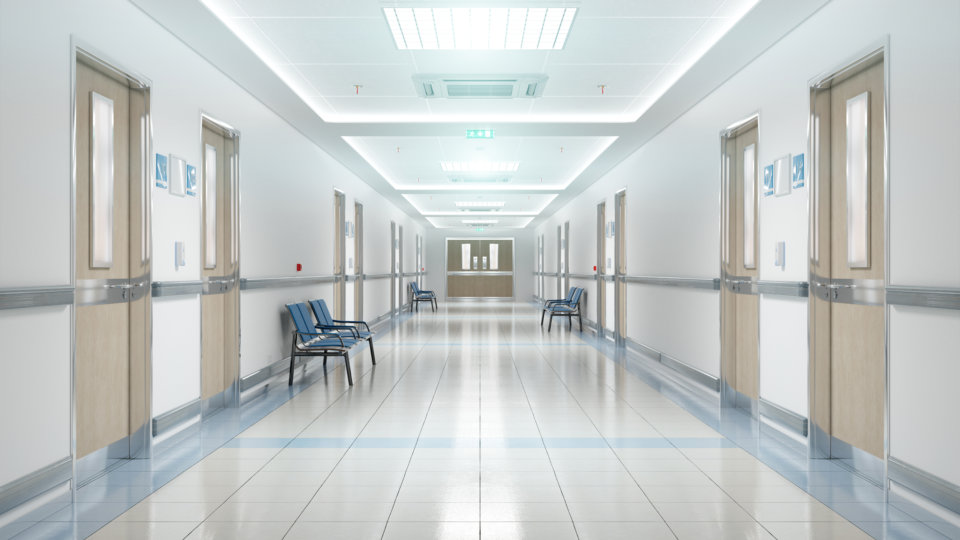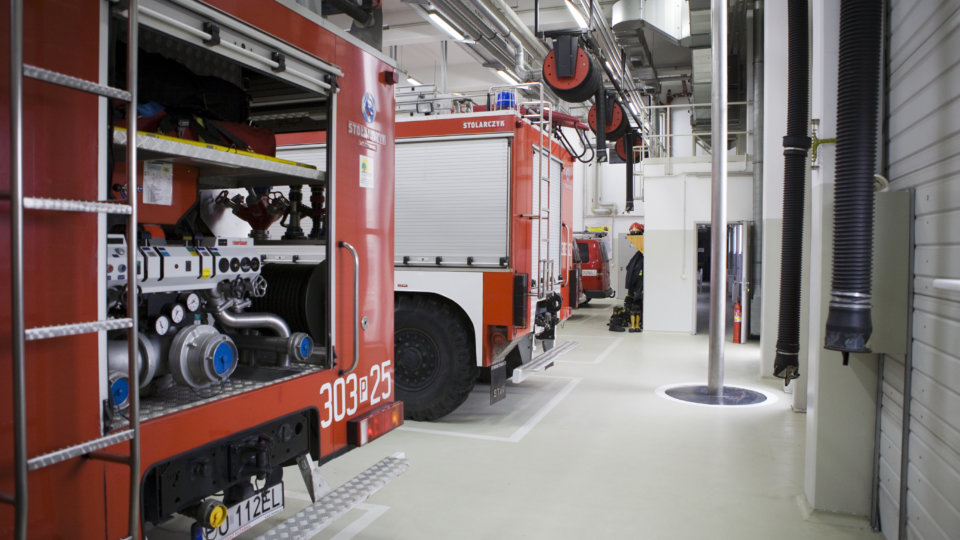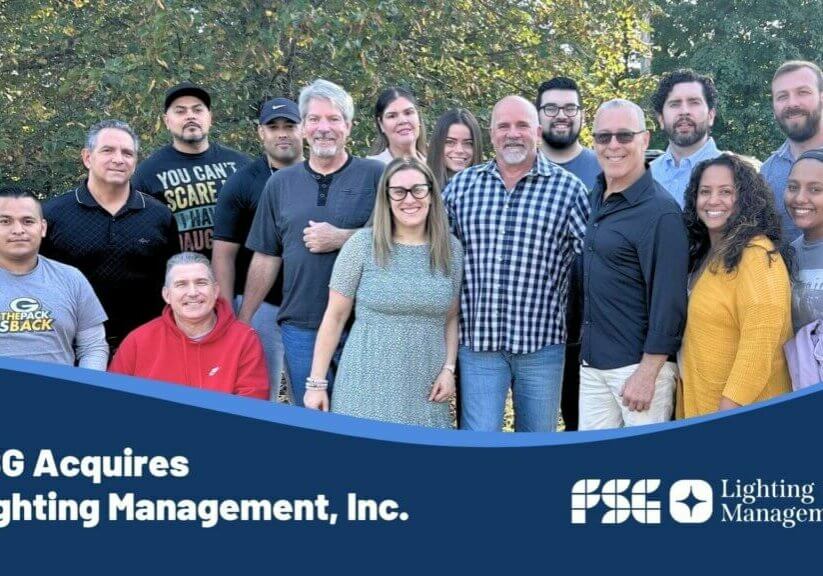When winter blizzards knock out electrical service, or in summer when utility companies institute rolling blackouts to prevent grid overloads, there are only two types of property owners: those who are thrilled to have emergency power and those who wish they did.
Commercial facilities in the United States take many forms and perform many functions. And yet, even though retail establishments, warehouses, hospitals, university buildings, and office facilities are all built to meet different needs, they share a common requirement: all are subject to state and local building codes that stipulate a need for emergency or backup power generation.
These state and local building codes for power generation are based on standards published by the National Fire Protection Association (NFPA). NFPA 110, Standard for Emergency and Standby Power Systems, and NFPA 111, Standard on Stored Electrical Energy Emergency and Standby Power Systems, provide the framework for building code requirements in most jurisdictions across the country.
Note: At the state and local level, backup power requirements for certain types of facilities may exceed the requirements given in NFPA 110. Therefore, it is always important to verify the local requirements that apply to your facility by contacting a knowledgeable and experienced generator installer.
Types of Backup Power Generation for Facilities
Generally, there are three types of backup power generation available to facility owners. The first two types are covered within the guidelines set forth in NFPA 110 and provide backup power for key loads. The third type of backup power generation represents an option for facility owners whose requirements exceed the normal provision detailed in NFPA 110.
1. Emergency Power Generators
Emergency power systems are those that provide backup power for building systems that create a safety hazard for humans if they cease to operate. Due to their critical role, emergency power systems are typically mandated by state law.
These backup generator systems automatically provide backup power in the event of power loss due to a power outage. These types of generators are required by NFPA code and must provide power within 10 seconds to all safety systems within the facility.
Exit lighting, smoke alarms and evacuation systems, fire alarm systems, escalators, elevators, and other systems required for safe egress by building occupants and visitors during life-threatening situations are powered by emergency power generators.
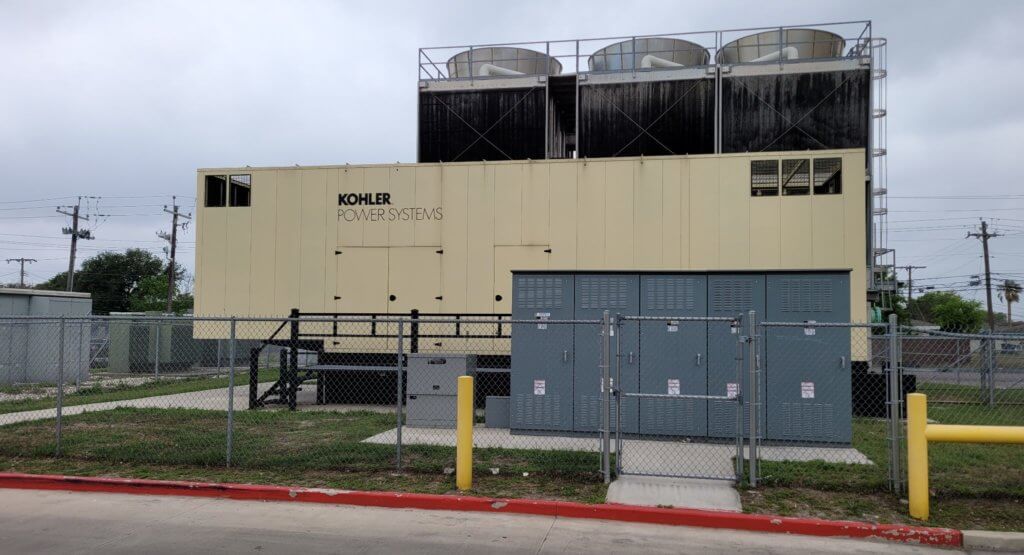
Source: FSG
According to the NFPA code, these emergency generator systems must be completely separate from normal facility power and must have their own electrical conduits, panels, switches, and associated control elements.
2. Standby Power Generators
Standby power systems may be required by law, but they may also be optional depending on local building codes. They provide backup power for building systems that may cause discomfort or business disruption if they cease to operate, but where there is no hazard to human life in case of an interruption.
These backup generator systems are similar to emergency generator systems, except that they have up to 60 seconds to automatically switch on and provide power. While these generators are also required by NFPA code, they are not required to be completely separate systems like emergency generator systems.
Unlike emergency power generators, standby power generators are not critically required to promote the safety of building occupants but are viewed as an important added component of enhanced egress measures.
3. Optional, Additional Standby Power Generators
Any additional power generation capacity added to a building or facility that is not required by code but that can be used to power key equipment, machinery, and systems that the business deems critical falls within the optional category.
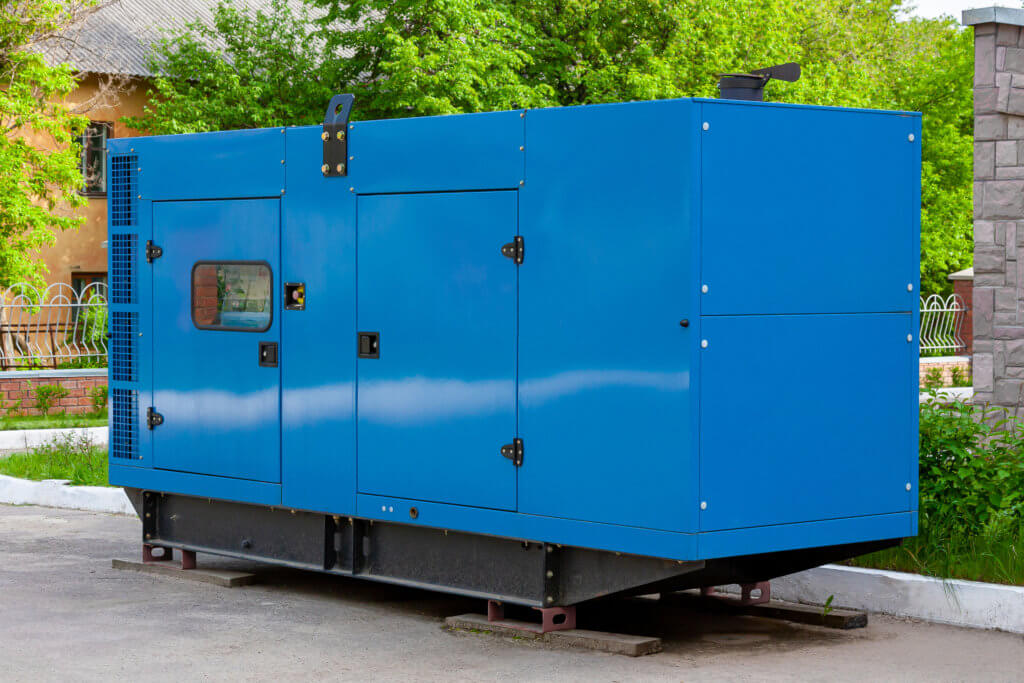
Source: iStock
Essentially, these backup generators help mitigate profit losses normally associated with extended downtime. These generators can keep HVAC systems running to provide continued comfort for all building occupants.
Optional standby power systems must be able to power emergency lighting, fire alarm systems, and for some facilities elevators in accordance with local building codes. Normally, these key loads would be powered by emergency or standby generators, so they must be calculated and considered when determining the capacity for an optional standby power system.
When is a Generator Required?
Generators provide electric power whenever the supply from the local electric utility company is interrupted. Depending on the application, a generator can be a luxury item or a critical system required by law.
There are some facilities for which backup power is critical. For example, hospitals and first responders rely on continuous operation even during times of widespread power outages.
For most commercial facilities, there is a financial benefit associated with owning a generator because it allows businesses to continue operations without unscheduled downtime.
Wilson Creek Wastewater Treatment Emergency Power Case Study
Most states and municipalities require that emergency power be available to support specific systems within commercial or multi-unit residential settings. These systems include:
- Voice communication systems
- Fire alarm systems
- Fire suppression systems
- Emergency lighting systems, including exit signs
- Elevators
- Smoke control systems
- Horizontal sliding doors
In addition to requiring the provision of emergency power in support of specific building systems, some state and local building codes specify particular details about the type of power provided.
Some building codes stipulate diesel power generation over natural gas generation in some settings, while others might tightly specify the amount of fuel required to be stored on-site at particular types of facilities.
Facilities That Typically Require Generators
Most building codes require that services essential to human safety have emergency power backup on hand. For this reason, it is understandable that health care facilities are required to maintain backup power generators on-site.
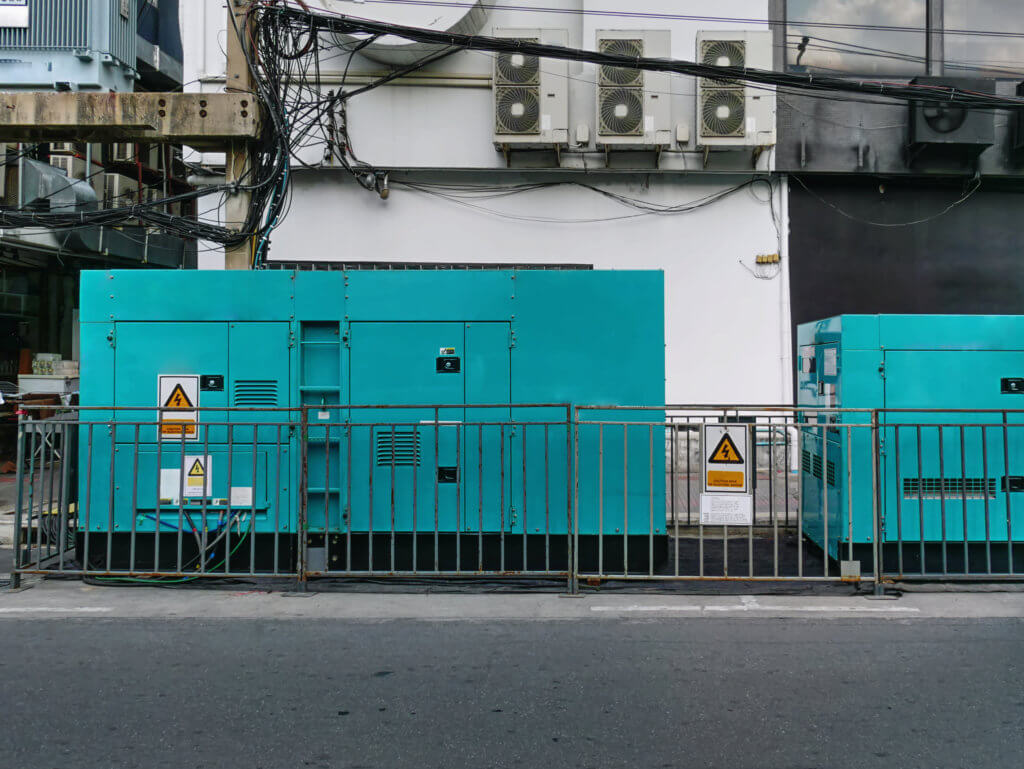
Source: iStock
Other types of facilities are also required to maintain backup power generation capabilities. These facilities include:
- Municipal buildings
- Police stations
- Fire stations
- Emergency dispatch centers
- Prisons
- Mental health facilities
- Motor fuel facilities (varies by state)
- Locations with toxic, highly toxic, or hazardous materials
- Specific fabrication facilities (for example, semiconductor fabrication)
- High rise buildings
- Water treatment facilities
- Airport traffic control towers
As mentioned above, the requirements for emergency power differ between states and municipalities. It is important that you contact an experienced professional to research local requirements for your particular facility.
FSG Provides Solutions for Emergency Power & Lighting
Whether the need is temporary electrical service for a healthcare facility or emergency generator service for an essential business, FSG is prepared and ready to deploy across the U.S. Let us know what your emergency electrical or backup power challenge is, and we will bring a solution.
Most importantly, you should never hesitate to reach out with any questions you may have about backup power generation at your facility. Code compliance is a very important factor in any backup power generation project, and FSG is your trusted resource for accurate information related to local building codes.
Commercial Generator Services
Healthcare facilities and essential businesses need to operate around the clock every day of the year. With seasonal storms, especially in coastal regions, facilities must have systems in place that will provide coverage for life safety systems and essential operations. FSG provides and installs large commercial generators as well as all associated connections and switchgear requirements of the facility.
Emergency Electrical Service
FSG teams will deliver, place, and wire emergency electrical service to provide power and lighting for businesses and healthcare facilities. Once the emergency or backup power is installed, businesses can continue to provide support to their communities that need their help. By leveraging our extensive industry partnerships developed over decades, FSG can help when emergencies happen.
FSG – Your Single-Source Backup Power Resource
Since 1982, FSG has delivered the type of electrical service and expertise our customers appreciate. Our industry experts understand the backup power generation requirements unique to your facility, and we have extensive experience in providing a wide range of services that support your backup power generation needs.
Call us at (877) 293-6689 today with any questions you may have about your facility’s particular requirements. Our emergency power experts can explain all aspects of the work required, and answer any questions you may have about the following topics:
- Fuel options – natural gas or diesel
- Peak power requirements
- Average power requirements
- Portability options for backup power generation
- Prime generator requirements
- Standby generator requirements
- Space and exhaust considerations
Our completed jobs list includes many individual backup generators as well as multiple-unit projects involving parallel switchgear, multiple docking stations, and the latest control systems.
And remember, if all you have is a question, we look forward to providing the answer you need. Contact us today!





